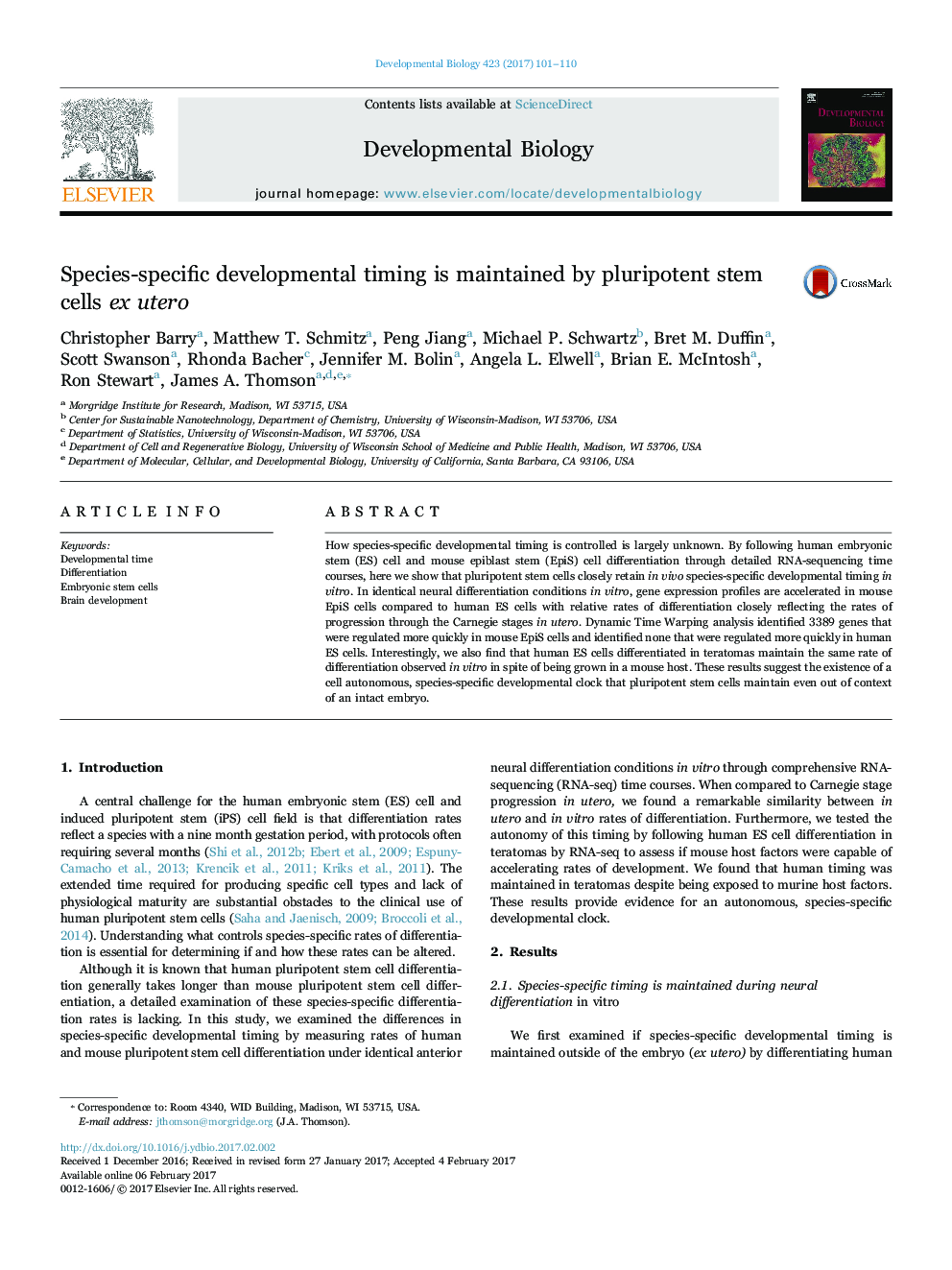| Article ID | Journal | Published Year | Pages | File Type |
|---|---|---|---|---|
| 5531967 | Developmental Biology | 2017 | 10 Pages |
â¢Human and mouse stem cells retain species-dependent rates of development in vitro.â¢Human ES cell differentiation is not accelerated by mouse factors in teratomas.â¢Ex utero differentiation mirrors Carnegie stage progression in utero.
How species-specific developmental timing is controlled is largely unknown. By following human embryonic stem (ES) cell and mouse epiblast stem (EpiS) cell differentiation through detailed RNA-sequencing time courses, here we show that pluripotent stem cells closely retain in vivo species-specific developmental timing in vitro. In identical neural differentiation conditions in vitro, gene expression profiles are accelerated in mouse EpiS cells compared to human ES cells with relative rates of differentiation closely reflecting the rates of progression through the Carnegie stages in utero. Dynamic Time Warping analysis identified 3389 genes that were regulated more quickly in mouse EpiS cells and identified none that were regulated more quickly in human ES cells. Interestingly, we also find that human ES cells differentiated in teratomas maintain the same rate of differentiation observed in vitro in spite of being grown in a mouse host. These results suggest the existence of a cell autonomous, species-specific developmental clock that pluripotent stem cells maintain even out of context of an intact embryo.
